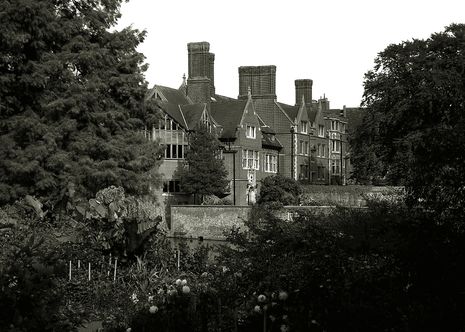Students should not be silenced by the University
The University should not hush up complaints against dons, write Akshata Kapoor and Nieve Brydges

Horror stories about university professors making advances on younger students have been one of the most shockingly common conversation topics during our time at Cambridge. From rumours about tenured professors with sexual harassment allegations against them, to Camfessions about supervisors behaving inappropriately. The number of times you might hear “someone in a senior year told me our supervisor was accused of sexual harassment”- countless; the number of times we have seen a public statement by the university acknowledging allegations against or expelling offenders: 0. In an institution that is bent on keeping allegations of sexual misdemeanour hushed up, there is little we are able to do beyond writing anonymous Facebook posts and hoping to start even the smallest of conversations.
The Tinder propositions revealed in the Varsity investigation can easily be brushed off as harmless - laughable, even - but this behaviour is only the tip of a large, scary iceberg dominated by men misusing their positions of power. If these staff members develop a penchant for entertaining the idea of barely-legal encounters online, who’s to say that this mindset is reserved purely for Tinder? What’s truly worrying is the implication that staff members are actively searching for younger female students.
Tinder may have mechanisms in place to limit one’s exposure to unwanted advances but the same cannot be said for your supervisions, Teams meetings, or lecture halls - where your presence is required and you don’t have the option to swipe left on people who make you uncomfortable.
There is a reason so many discussions around sexual misconduct at Cambridge University seem to be relegated to hushed up gossip: those in power are failing to respond effectively to complaints of sexual misdemeanours. An investigation into sexual misconduct in British universities, by Al Jazeera in 2021, revealed that Andrew Orchard has been accused of several claims of sexual harassment, sexism, and inappropriate drunken behaviour by various past students. Orchard has been affiliated with numerous prestigious institutions. There has been, unsurprisingly, a resounding silence from Oxbridge institutions. While Pembroke College and the English Faculty in Oxford have assured their students that Orchard will not be teaching them, there has been no public support for survivors or condemnation from either university.
“What’s truly worrying is the implication that staff members are actively searching for younger female students”
Peter Hutchinson, a former Fellow of Trinity Hall, Cambridge, has been accused of sexual misconduct. This resulted in his exclusion from the College, after which he was briefly readmitted before ultimately resigning following understandable student consternation. Hutchinson still retains the “symbolic” title of Emeritus Reader at the MML Faculty. However symbolic the university wants the role to remain, it nonetheless legitimises Hutchinson’s lasting presence in the university. Much like how our colleges and libraries are haunted by the names of colonisers, the legacy of sexual harassers will live on through “symbolic” titles and continued tokens of acceptance. Excising their lingering presence as figureheads of the University requires more than a slap on the wrist.
It’s hardly surprising that the University has failed to expel these phantoms of abuse from our academic environment. As an institution that has gained power through the slave trade, and continues to invest in fossil fuels and the arms industry, Cambridge University has a chequered past when it comes to making amends. When our history of ‘keeping things hush-hush’ is fossilised in the very walls of this institution, how can we expect that individual abuses of power will be properly dealt with? Naming and shaming these cases of sexual misconduct is a necessary precaution against future offences, and a step in the right direction in terms of challenging institutional silence on matters of exploitative relationships - within the university and further abroad.
Following reports of universities in the UK using NDAs to silence student complaints, Cambridge is now one of 6 universities to sign a pledge to not use NDAs for cases of bullying, sexual harassment, and misconduct. However, unless the university takes a stronger stance in condemning past cases of sexual misconduct by employees, and works on regularly improving related procedures including mandating sexual harassment workshops for all staff and routine reviews of sexual harassment procedures, members in positions of power will continue to misuse their authority, and students will remain victims of advances that turn their spaces of learning and living into an online and offline nightmare.
 News / British Academy elects 12 Cambridge academics22 July 2025
News / British Academy elects 12 Cambridge academics22 July 2025 News / Lord Smith elected Cambridge chancellor23 July 2025
News / Lord Smith elected Cambridge chancellor23 July 2025 News / Cambridge scholarship recipient trapped in Gaza21 July 2025
News / Cambridge scholarship recipient trapped in Gaza21 July 2025 Comment / Stop disarming people of their nuance23 July 2025
Comment / Stop disarming people of their nuance23 July 2025 News / Chancellorship candidates express concern about conduct of election 19 July 2025
News / Chancellorship candidates express concern about conduct of election 19 July 2025









